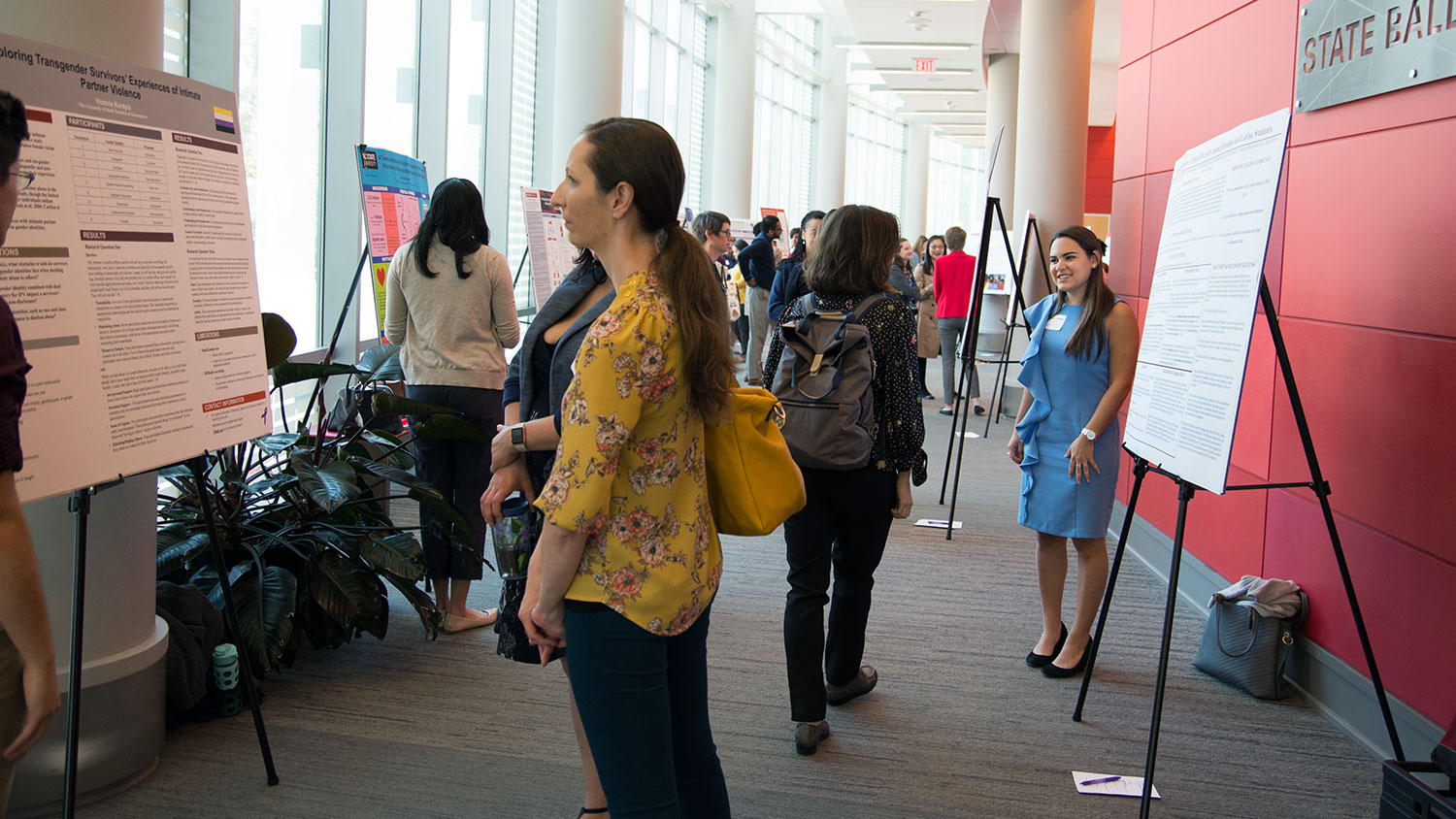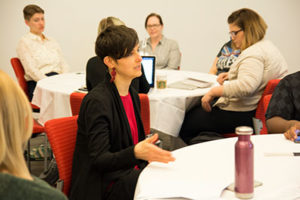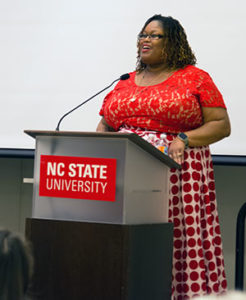
Cultural anthropologist Margaret Mead once said, “Never doubt that a small group of thoughtful, committed citizens can change the world; indeed, it’s the only thing that ever has.”
 With a staff of only five, the NC State Women’s Center has proven itself to be a small group of thoughtful, committed citizens by hosting events with big impact, such as last spring’s first campus-wide Gender and Equity Research Symposium. Angela Gay, now assistant director of the Women’s Center, coordinated the event, which included a welcome address, poster presentations and a luncheon with keynote. (See Gender, Equity Symposium Showcases Research for more about the 2017 event.)
With a staff of only five, the NC State Women’s Center has proven itself to be a small group of thoughtful, committed citizens by hosting events with big impact, such as last spring’s first campus-wide Gender and Equity Research Symposium. Angela Gay, now assistant director of the Women’s Center, coordinated the event, which included a welcome address, poster presentations and a luncheon with keynote. (See Gender, Equity Symposium Showcases Research for more about the 2017 event.)
Continuing its mission to change the world for the better beginning with the NC State community, the Women’s Center hosted its second annual Gender and Equity Research Symposium on Monday, April 2, 2018.

Due to positive feedback, the event returned with an expanded program, including a “Power Panel” moderated by graduate assistant Maria Tudela that explored how power perpetuates oppression in the realm of higher education; two Ethics Talks about utilizing good social justice practices within research involving human subjects with Jennie Ofstein, IRB Coordinator in the Office of Sponsored Programs and Regulatory Compliance Services; poster presentations; undergraduate roundtable research presentations for students on a variety of topics on gender and equity within social work, women and gender studies and psychology; oral presentations by current researchers; and a closing mixer sponsored by the Women’s and Gender Studies Department.
Preston Keith, assistant director of the GLBT Center, presented this year’s welcome address. Through personal insights and observations about his own journey to self-empowerment, Keith’s remarks explored the idea that those who feel marginalized at institutions such as NC State must move from survival mode to the active disruption of oppressive systems, reclaiming the right to spaces previously denied to them, and that we must transform institutions through revolution and liberation.
Alyssa Rockenbach, professor in the Educational Leadership, Policy and Human Development Higher Education Program, gave the luncheon keynote address. Rockenbach’s based her remarks on research conducted by the Interfaith Diversity Experiences and Attitudes Longitudinal Survey (IDEALS), which spoke to the experiences of worldview minority women of color within their first year of college. The keynote explored where we are nationally in how institutions support worldview minority women of color and provided opportunities for reflection on how to improve practice and create spaces for support.
With three times as many poster presentations as last year, visitors had numerous topics to peruse throughout the day outside of the Talley Student Union Ballroom. Increased interest in topics of gender and equity means that the center looks forward to another robust symposium next year.
Organizer Angela Gay stated, “it is difficult to pinpoint singular high points when everything was simply wonderful and engaging. Feedback from poster presenters indicated that they received so much encouragement from presenting their work and engaging with other scholars (peers and faculty). Oral presentations, additionally, were critical, thoughtful, engaging and passionate. You could see audience members really connecting with the work of the scholars in ways that were beneficial to their own practice. If I had to choose my highlights, I think it would be the opening session, which was both heartful and simultaneously a call to action as well as a panel on power, which spoke truth to how power is constructed within institutions of higher education.”
Women’s Center Director Lisa LaBarbera-Mascote stated, “This year’s symposium reminded me of the amazing depth of interdisciplinary gender and equity research, scholarship and activism that is taking place on this campus. At its core, the symposium called attention to current scholarship, while at the same time leaving participants with a charge to do the work of creating systemic change. Angela and the planning team did an excellent job of enhancing the depth and breadth of the offerings provided. The symposium truly provided a way to involve and engage all members of the campus community.”
- Visit the Women’s Center website to stay up to date on events and programs.